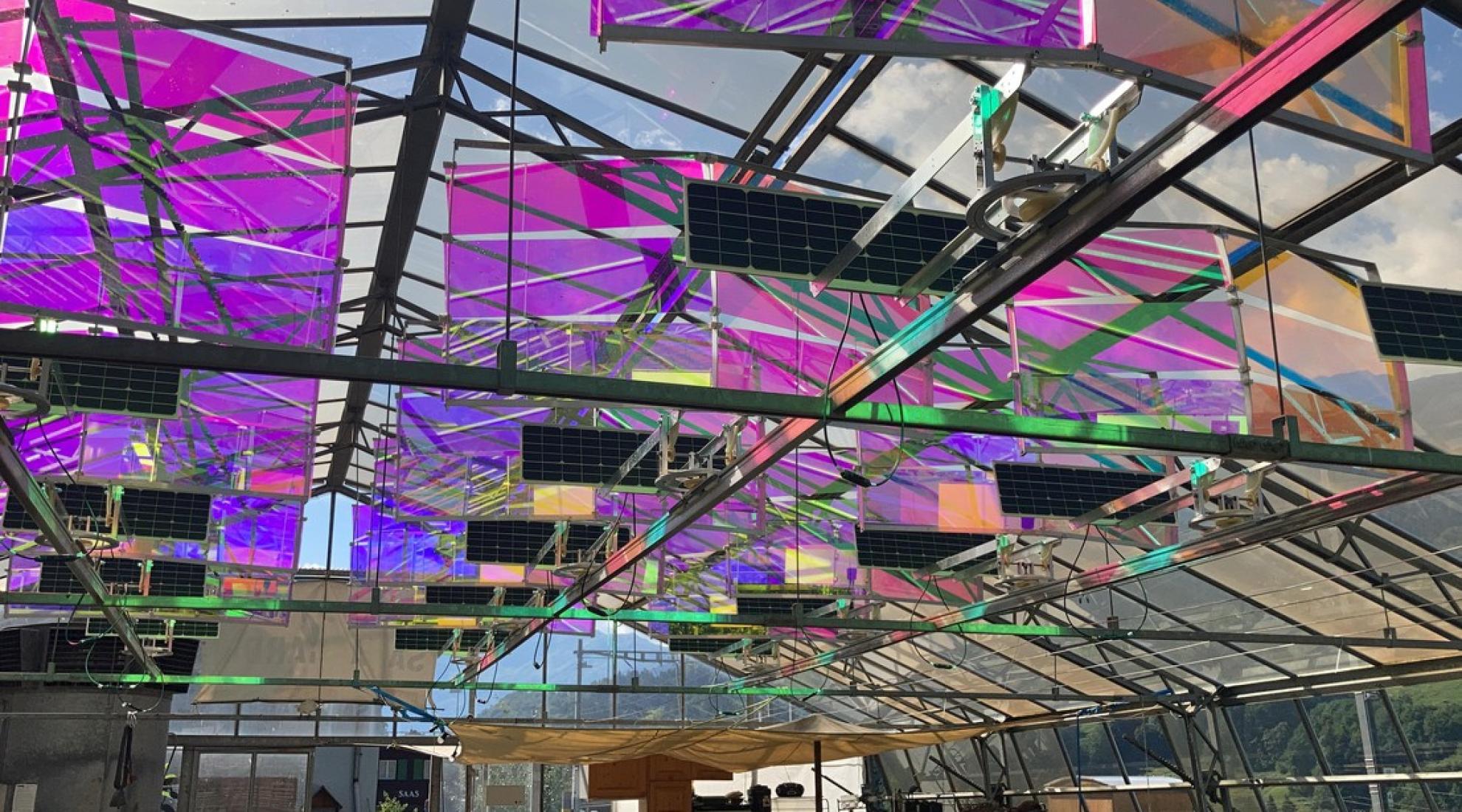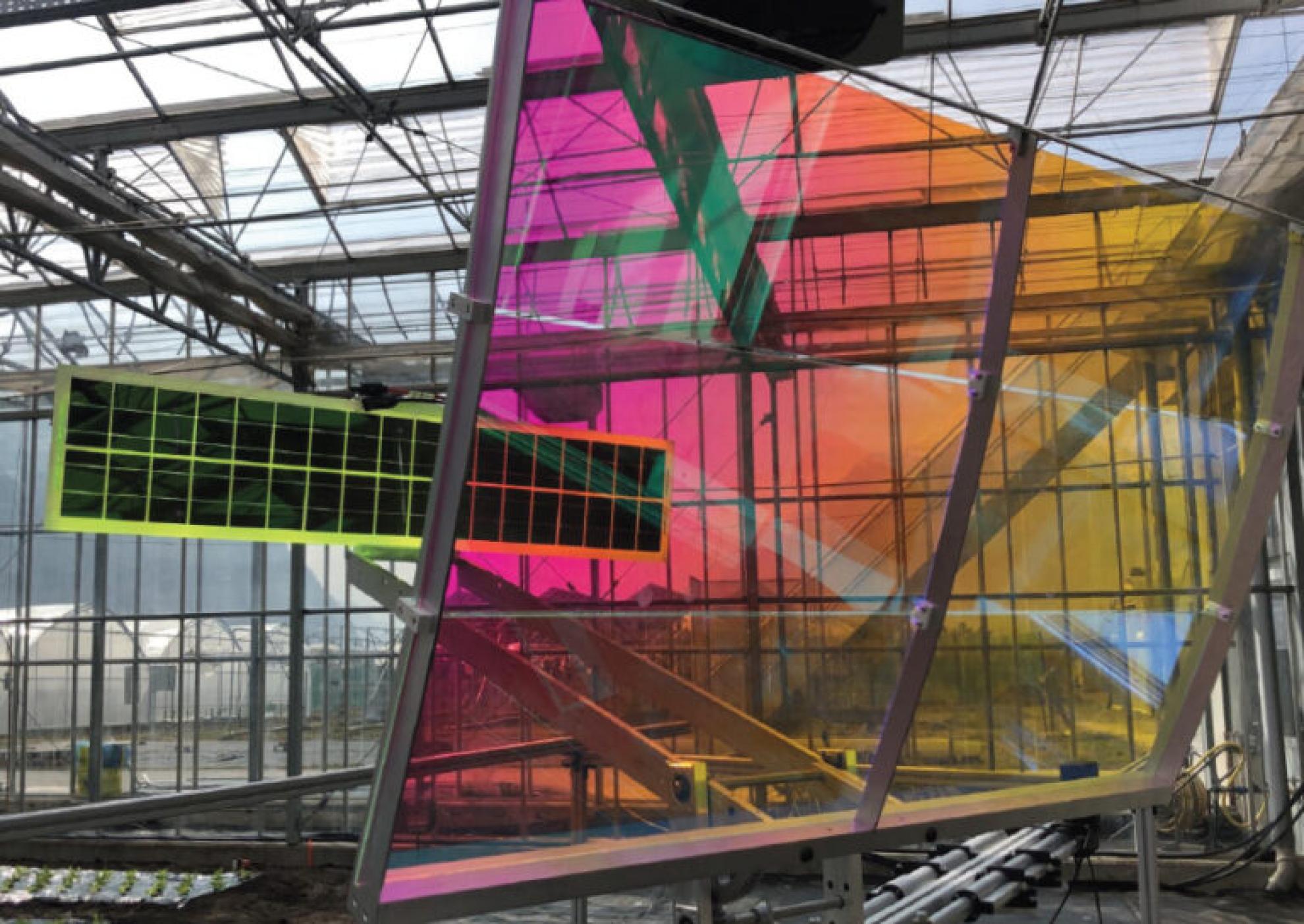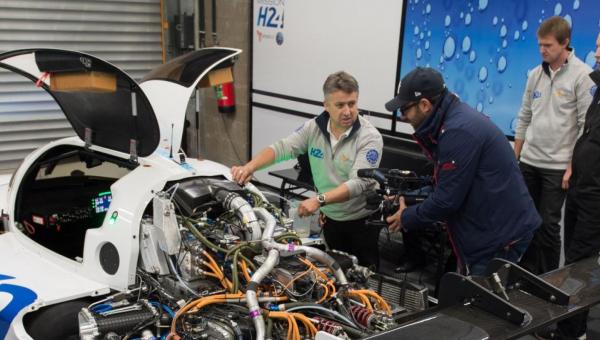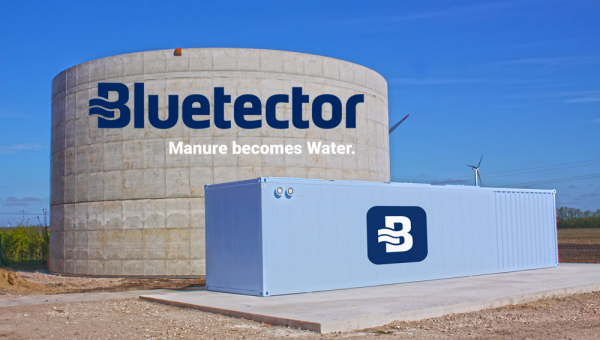Special solar modules to make greenhouses climate neutral

With solar modules splitting the spectrum of light as it enters greenhouses, a Lausanne-based start-up demonstrates that food and energy can be produced simultaneously.
There is no way that Swiss supermarkets could sell tomatoes, cucumbers and many other vegetables all year round without greenhouses. While grocery shoppers certainly like this availability, the flip side of the coin is the huge amount of power it takes to run greenhouses, especially in winter to heat them.
Splitting sunlight
The EPFL start-up Voltiris has developed a technology that makes it possible to feed sunlight to plants and photovoltaic (PV) systems at the same time. It uses solar modules to filter the sunlight, allowing only red and blue light through to the plants below. The 'excess' light – which plants don't need – is concentrated onto small PV cells. According to Voltiris, these special panels generate the same amount of energy as normal, permanently installed PV panels. But unlike the normal panels, the special ones allow the parts of the spectrum through that plants need to grow. The technology allows greenhouse owners to transform their greenhouses into renewable power plants, efficiently control their energy costs, and improve the viability and sustainability of their operations.
Covering up to 100% of the greenhouse's own energy needs
Following encouraging preliminary results in pilot tests carried out at two greenhouses, a first commercial installation was recently installed in the canton of Graubünden. The company reports that two people performed the entire installation within half a day while the greenhouse was in operation. Such an installation can cover 60–100% of the greenhouse's energy needs, e.g. 4.3 gigawatts per hour annually for a 5-hectar greenhouse, while halving its CO2 emissions. Voltiris says that four more pilot projects in large industrial greenhouses in Switzerland and the Netherlands are planned for the coming year, after which it will bring the product to the market during the second half of 2023.

Voltiris modules transmit 100% of the light crops need, with no decrease in agricultural yield.
This invention could make life easier for vegetable producers. When the globally binding climate targets were set, if not earlier, it became clear that vegetable production too must reduce its impact on the climate. One of the largest Swiss retailers has announced that from 2026 onwards only vegetables from climate-neutral greenhouses will find their way into its supermarkets.




